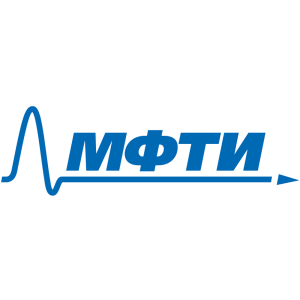Highly efficient multiple exciton generation in colloidal PbSe and PbS quantum dots.
Randy Ellingson
1
,
Matthew C Beard
1
,
Justin C. Johnson
1
,
Pingrong Yu
1
,
Olga I Mićić
1
,
Arthur J. Nozik
1
,
Andrew Shabaev
1
,
A.L. Efros
1
Publication type: Journal Article
Publication date: 2005-03-30
scimago Q1
wos Q1
SJR: 2.967
CiteScore: 14.9
Impact factor: 9.1
ISSN: 15306984, 15306992
PubMed ID:
15884885
General Chemistry
Condensed Matter Physics
General Materials Science
Mechanical Engineering
Bioengineering
Abstract
We report ultra-efficient multiple exciton generation (MEG) for single photon absorption in colloidal PbSe and PbS quantum dots (QDs). We employ transient absorption spectroscopy and present measurement data acquired for both intraband as well as interband probe energies. Quantum yields of 300% indicate the creation, on average, of three excitons per absorbed photon for PbSe QDs at photon energies that are four times the QD energy gap. Results indicate that the threshold photon energy for MEG in QDs is twice the lowest exciton absorption energy. We find that the biexciton effect, which shifts the transition energy for absorption of a second photon, influences the early time transient absorption data and may contribute to a modulation observed when probing near the lowest interband transition. We present experimental and theoretical values of the size-dependent interband transition energies for PbSe QDs. We present experimental and theoretical values of the size-dependent interband transition energies for PbSe QDs, and we also introduce a new model for MEG based on the coherent superposition of multiple excitonic states.
Found
Nothing found, try to update filter.
Found
Nothing found, try to update filter.
Top-30
Journals
|
20
40
60
80
100
120
|
|
|
Journal of Physical Chemistry C
105 publications, 6.93%
|
|
|
Nano Letters
68 publications, 4.49%
|
|
|
ACS Nano
52 publications, 3.43%
|
|
|
Physical Review B
47 publications, 3.1%
|
|
|
Journal of Physical Chemistry Letters
46 publications, 3.03%
|
|
|
Applied Physics Letters
39 publications, 2.57%
|
|
|
Journal of the American Chemical Society
34 publications, 2.24%
|
|
|
Nanoscale
27 publications, 1.78%
|
|
|
Physical Chemistry Chemical Physics
24 publications, 1.58%
|
|
|
Nanotechnology
23 publications, 1.52%
|
|
|
Journal of Chemical Physics
21 publications, 1.39%
|
|
|
ACS applied materials & interfaces
19 publications, 1.25%
|
|
|
Journal of Materials Chemistry A
19 publications, 1.25%
|
|
|
Journal of Physical Chemistry B
18 publications, 1.19%
|
|
|
RSC Advances
18 publications, 1.19%
|
|
|
Nature Communications
17 publications, 1.12%
|
|
|
Physical Review Letters
16 publications, 1.06%
|
|
|
Journal of Applied Physics
15 publications, 0.99%
|
|
|
Solar Energy Materials and Solar Cells
15 publications, 0.99%
|
|
|
Electrochimica Acta
15 publications, 0.99%
|
|
|
Small
15 publications, 0.99%
|
|
|
Advanced Materials
15 publications, 0.99%
|
|
|
Journal of Materials Chemistry C
14 publications, 0.92%
|
|
|
Langmuir
11 publications, 0.73%
|
|
|
Energy and Environmental Science
11 publications, 0.73%
|
|
|
Chemical Reviews
10 publications, 0.66%
|
|
|
Chemical Physics Letters
10 publications, 0.66%
|
|
|
Chemistry of Materials
10 publications, 0.66%
|
|
|
Accounts of Chemical Research
10 publications, 0.66%
|
|
|
20
40
60
80
100
120
|
Publishers
|
50
100
150
200
250
300
350
400
450
|
|
|
American Chemical Society (ACS)
414 publications, 27.31%
|
|
|
Elsevier
247 publications, 16.29%
|
|
|
Royal Society of Chemistry (RSC)
157 publications, 10.36%
|
|
|
Springer Nature
131 publications, 8.64%
|
|
|
Wiley
130 publications, 8.58%
|
|
|
AIP Publishing
90 publications, 5.94%
|
|
|
American Physical Society (APS)
68 publications, 4.49%
|
|
|
IOP Publishing
55 publications, 3.63%
|
|
|
Institute of Electrical and Electronics Engineers (IEEE)
40 publications, 2.64%
|
|
|
MDPI
20 publications, 1.32%
|
|
|
Taylor & Francis
18 publications, 1.19%
|
|
|
Optica Publishing Group
10 publications, 0.66%
|
|
|
Trans Tech Publications
10 publications, 0.66%
|
|
|
SPIE-Intl Soc Optical Eng
8 publications, 0.53%
|
|
|
Pleiades Publishing
8 publications, 0.53%
|
|
|
Cambridge University Press
7 publications, 0.46%
|
|
|
Hindawi Limited
7 publications, 0.46%
|
|
|
Walter de Gruyter
6 publications, 0.4%
|
|
|
Uspekhi Fizicheskikh Nauk Journal
4 publications, 0.26%
|
|
|
EDP Sciences
4 publications, 0.26%
|
|
|
Japan Society of Applied Physics
4 publications, 0.26%
|
|
|
American Association for the Advancement of Science (AAAS)
4 publications, 0.26%
|
|
|
Oxford University Press
3 publications, 0.2%
|
|
|
The Royal Society
3 publications, 0.2%
|
|
|
The Electrochemical Society
3 publications, 0.2%
|
|
|
Physical Society of Japan
3 publications, 0.2%
|
|
|
Autonomous Non-profit Organization Editorial Board of the journal Uspekhi Khimii
3 publications, 0.2%
|
|
|
IGI Global
3 publications, 0.2%
|
|
|
Annual Reviews
3 publications, 0.2%
|
|
|
50
100
150
200
250
300
350
400
450
|
- We do not take into account publications without a DOI.
- Statistics recalculated weekly.
Are you a researcher?
Create a profile to get free access to personal recommendations for colleagues and new articles.
Metrics
1.5k
Total citations:
1516
Citations from 2024:
48
(3.17%)
Cite this
GOST |
RIS |
BibTex |
MLA
Cite this
GOST
Copy
Ellingson R. et al. Highly efficient multiple exciton generation in colloidal PbSe and PbS quantum dots. // Nano Letters. 2005. Vol. 5. No. 5. pp. 865-871.
GOST all authors (up to 50)
Copy
Ellingson R., Beard M. C., Johnson J. C., Yu P., Mićić O. I., Nozik A. J., Shabaev A., Efros A. Highly efficient multiple exciton generation in colloidal PbSe and PbS quantum dots. // Nano Letters. 2005. Vol. 5. No. 5. pp. 865-871.
Cite this
RIS
Copy
TY - JOUR
DO - 10.1021/nl0502672
UR - https://doi.org/10.1021/nl0502672
TI - Highly efficient multiple exciton generation in colloidal PbSe and PbS quantum dots.
T2 - Nano Letters
AU - Ellingson, Randy
AU - Beard, Matthew C
AU - Johnson, Justin C.
AU - Yu, Pingrong
AU - Mićić, Olga I
AU - Nozik, Arthur J.
AU - Shabaev, Andrew
AU - Efros, A.L.
PY - 2005
DA - 2005/03/30
PB - American Chemical Society (ACS)
SP - 865-871
IS - 5
VL - 5
PMID - 15884885
SN - 1530-6984
SN - 1530-6992
ER -
Cite this
BibTex (up to 50 authors)
Copy
@article{2005_Ellingson,
author = {Randy Ellingson and Matthew C Beard and Justin C. Johnson and Pingrong Yu and Olga I Mićić and Arthur J. Nozik and Andrew Shabaev and A.L. Efros},
title = {Highly efficient multiple exciton generation in colloidal PbSe and PbS quantum dots.},
journal = {Nano Letters},
year = {2005},
volume = {5},
publisher = {American Chemical Society (ACS)},
month = {mar},
url = {https://doi.org/10.1021/nl0502672},
number = {5},
pages = {865--871},
doi = {10.1021/nl0502672}
}
Cite this
MLA
Copy
Ellingson, Randy, et al. “Highly efficient multiple exciton generation in colloidal PbSe and PbS quantum dots..” Nano Letters, vol. 5, no. 5, Mar. 2005, pp. 865-871. https://doi.org/10.1021/nl0502672.












































